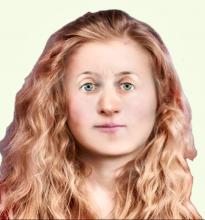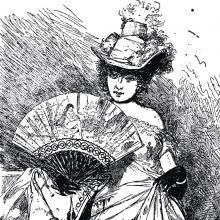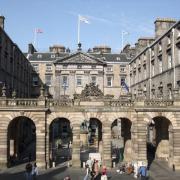
EDINBURGH TOWN COUNCIL.
The usual meeting of the Town Council was held to-day—Lord Provost Sir James Steel presiding.
THE HOUSING QUESTION IN GREEENSIDE.
A letter was read from the chairman of a public meeting held in Greenside, transmitting a copy of resolutions passed at the meeting on the subject of the housing question in Greenside. The letter contained the resolutions which were passed at that meeting.
A deputation was present, and was introduced by Mr Douglas. It was unusually large and influential, and included the Rev. Jn. Lamond, the parish minister of Greenside; the Revs. Canon Ellis, Canon Donlevy,[1] J. W. Dunbar and James Harvey, and other medical and well-known district gentlemen. Mr J. R. Paterson, who had acted as chairman of the meeting, formally introduced the business of the deputation, for whom Mr Lamond acted as spokesman.
He said he could assure this honourable house that the Greenside Improvement Scheme was being keenly watched by the city, and considerable anxiety was felt as to the future policy of the Council regarding it. They were in no sense opposed to the Council; they wanted to strengthen their hands in carrying out the scheme to which they were now committed.
PROTEST AGAINST ONE-ROOMED HOUSES.
But some measure of alarm had awakened their minds by the fact that the Council had begun by erecting one-roomed houses in that district. They sincerely trusted this would not be unduly amplified, and that such houses as might be erected would be placed under strict supervision. They wished to see Greenside improved, and they did not see how this was to be done if the district was to be made the centre for one-roomed houses.
It seemed to them that if these one-roomed houses were multiplied the very people would be attracted that they wished to keep away. They were there in the interests of scores of respectable families resident in Greenside who had, in the meantime, most unjustly in their judgment, to bear the reproach that had unhappily become attached to that part of the city.
ROYAL TERRACE BY NIGHT.
A matter on which he felt very keenly was the state of Royal Terrace at night. He had himself witnessed scenes there of the most shocking character, and he had been told on the testimony of those he had no reason to doubt that outrages had been perpetrated there which ought not to be possible in any law-abiding city. They trusted that through the Council’s Greenside scheme all this would be checked. In the meantime things had gone from bad to worse. This had been in some measure owing to the reletting of the properties acquired by the Council. That was one reason why the carrying out of this scheme should be proceeded with as speedily as possible.
At the meeting there was a strong expression of opinion that adequate access should be provided for Greenside. It was believed that if adequate means of access were provided Greenside would speedily work out its own salvation. The Rev. Canon Ellis, in supporting the deputation, said that in their efforts to lift up these people and set before them higher, brighter, and better ideals, they were fighting against tremendous odds. Every effort should be made to weed out undesirable characters. The number of one-roomed houses should be limited, and the tenants should only be aged couples or widows. The district should also be opened up; there should be no lanes or cul-de-sacs, and they would like to see the Council work in harmony with the Social Union. (Hear, hear.)
The Rev. J. W. Dunbar said that as one who had 18 years’ experience of personal work in Greenside and neighbourhood, he had seen the locality going down. He was in the fullest sympathy with the movement represented before the Council. He had to thank the Council for receiving the deputation.
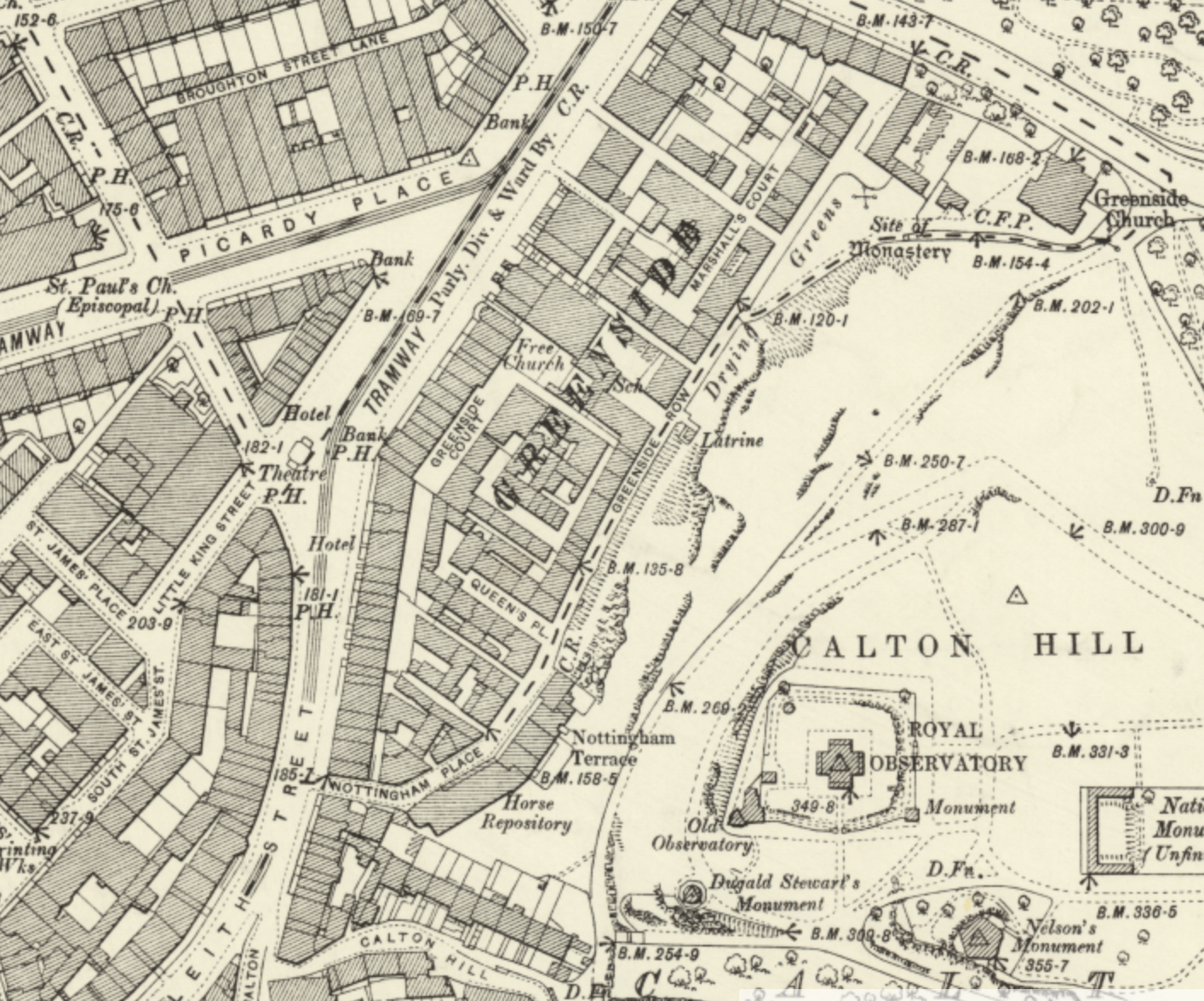
The Lord Provost said that perhaps the members of the Council would wish to ask questions of the deputation. Mr Balfour asked the deputation where they were going to put those poor creatures, because that was one of the greatest difficulties they had to contend against. Canon Ellis said the work would be done gradually. Bailie Telfer asked the deputation it they had seen the one-roomed houses erected by the Corporation.
Sir A. M’Donald said the bulk of the speakers, from their speeches, were against one-roomed houses being placed there. As a member of the committee, he could say that they were putting them down for people that could not afford to pay any more. (Hear, hear.) He was rather surprised at the tone of the speeches pointing out undesirable people being in the one-roomed houses. From their experience, he could say it was the two-roomed, not the one-roomed, in which they had the worst characters. It was the cost, and he would like to know that if they erected two-roomed houses instead of one, if the clergy and their Churches would be prepared to pay the difference. (Hear, hear.) They did not want undesirable people in Greenside or anywhere else.
Canon Ellis, in reply to Sir Andrew’s observations, said he had admitted the necessity of one roomed houses to some extent. Nor did he say that undesirable characters were found merely in one-roomed houses, but in Greenside.
THE DEPUTATION’S RESPONSIBILITY.
Bailie Mallinson said one-roomed houses could only be limited by the number of people who could not afford to pay for more than one room. Was it not better that the Corporation should erect clean, sanitary, supervised one-roomed houses for the poorest class of the population than leave them at the mercy of the slum owner who subdivided? The deputation were taking very grave responsibility in creating a public opinion against one-roomed houses.
Judge Macpherson called attention to statements made at the public meeting that some of the houses now in the hands of the Corporation had been let to parties for immoral purposes. Were any of the deputation in a position to verify that statement. A member of the deputation said this certainly was the case. Since the houses had come into the hands of the town prostitutes had been harboured in some of them.
JUDGE BROWN CROSS-QUESTIONS THE DEPUTATION.
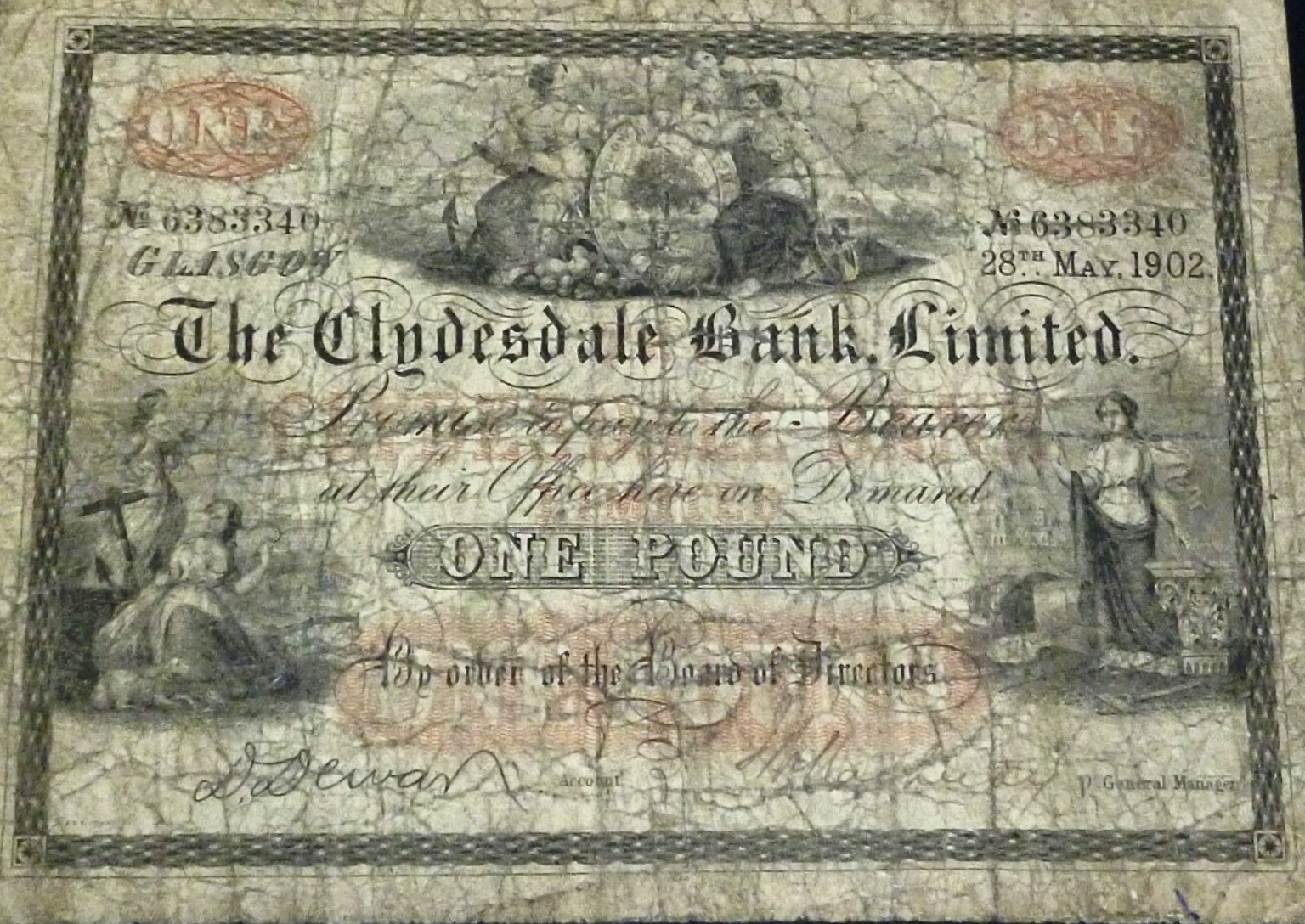
Judge Brown, the convener of the Improvements Committee, said he did not think the deputation were warranted in holding a meeting, passing resolutions, and coming here unless they were prepared to answer questions he proposed to put. Did they know the class of persons for whom the Corporation required to provide housing accommodation in this district? He had not been able to gather that Mr Lamond had said a single word with regard to the class of persons the Corporation were forced to deal with under this scheme.
Canon Ellis: I know something of Simpson’s Court.
Mr Lamond: We have admitted that there is a distinct need for one-roomed houses. We are here to oppose the idea that Greenside is to be made the centre for these one-roomed houses. (“Oh, oh.”)
Judge Brown: Do the deputation know the financial position of those people, and the amount they are able to pay for houses?
Mr Lamond: The clergy are holding meetings and making inquiries as to the social condition of the people, the amount of money coming into the families, &c.
Judge Brown said that the Corporation had had information as to tenants for the last 50 years. If they were told that in the case of 60 per cent of the residenters that the total income spread over the family did not exceed £1 per week, what proportion of this would they say should be applied to house rent? (A Member: “Not over a week.”)
Did the deputation know that nearly one-half of the residenters in Greenside actually did pay a rental of 2s per week? Was it possible to have houses of two rooms at that money? A member of the deputation remarked that some paying 2s week were earning 30s to £2 a week.
SAVING THE COAL AND BURNING THE FITTINGS.
Canon Donlevy, interposing, said; they were making a mistake in carrying on this bickering. There was no logic in it at all. (Hear, hear.) What they wanted to get at was the good they could do to Greenside. The Town Council had admitted for years that there was a necessity for improvement here; the deputation, for their part, were there to help on the improvement. (Hear, hear.)
His connection with Greenside as a clergyman had lasted for 25 years, and he knew that the people there were paying rent for wretched houses, not once a year but once a week, paying rent that would get them comfortable quarters elsewhere if their money could be economised and put in the proper direction. Mr Brown might rest assured that there were many in Greenside who could with a little guidance and direction pay for two rooms. Some were paying 3s 6d a week for a house without furniture, some were paying rent by saving the coal and burning what belonged to the landlord. (Laughter.)
There was misapprehension on the part of Councillors when they said the deputation was opposed to one-roomed houses. (Hear, hear.) He was not opposed to one-roomed houses, but preferred to see a person who could afford it in a two-roomed house. (Hear, hear.) They wanted one-roomed houses restricted to the wants of those who could not afford to pay for more.[2]
FAMILIES IN ONE-ROOMED HOUSES.
Judge Brown thereafter resumed his interrogation, questioning the deputation with regard to the accounts of the Greenside one-roomed residents, and their ability to pay for more than one room when Mr Dunbar interposed with a protest against questions based on the assumption that the deputation was opposed to one-roomed houses. They were opposed to families with children living in one-roomed houses.
Judge Brown said that the caretaker of the Corporation property in Tron Square emphatically stated that there were no more than two adults, and in some instances young children below ten years of age, residing in these houses. Mr Lamond observed that children under ten years of age got beyond ten years. They had found as clergymen that such an ideal of family life was not satisfactory. Judge Brown—Take it that the Council are absolutely with you. We want you to tell us how many of the people in Greenside are to be accommodated otherwise than in one-roomed houses.
Treasurer Cranston asked Mr Lamond whether Greenside contributed entirely to the state of things in Royal Terrace at night. Mr Lamond said that his impression was that Greenside did contribute to some extent, he did not say wholly. Treasurer Cranston said this matter was one of proper police supervision. They would be much indebted to any citizen letting the chief of police know of these things.
Mr Geddes said reference had been made to a new access, would the deputation state what the Council should do? Bailie Waterston—It is in the original plan, from the bottom end into Leopold Place. Treasurer Cranston said when they wanted to buy property in Greenside they had to pay through the nose. Canon Ellis proposed a vote of thanks to the Council, and the deputation thereupon withdrew.
Mr BROWN ON THE POLICY OF THE COMMITTEE.
Mr Brown said he thought it right to inform them that it was not correct to say that the Council had done nothing, or practically nothing, with this area. Since they acquired the property the Council had closed as insanitary and unfit for occupation about one-third of the various houses which they had acquired. They had demolished the whole of the tenements marked in dark red on the plan, and they had asked further a report from the medical officer of health, from the sanitary inspector, and from the burgh engineer, whether in view of these properties, which were the worst properties, being removed, whether they now considered that the old properties might be renovated in such a way as might be made habitable for the class of people living in Greenside.
The committee were well aware, and had had reports from the officials regarding the people there, their incomes, and regarding the whole situation. At an early date the committee would bring up a recommendation, principally on the lines he had indicated, that these properties which were fairly good might be reconstructed and made fit for occupation.
The question of how many two-roomed houses and one-room houses they would have was one they were well acquainted with. Referring to the statement as to the death-rate in one-roomed houses in Glasgow quoted, Mr Brown pointed out that Dr Chalmers said that there were contributing causes, drink, dirt, and darkness. They were doing what they could to remove the darkness, they hoped to remove the dirt, and it would be for the magistrates to see that in this district they curtail the opportunities for drunkenness. (Hear, hear.)
It was a moral question, and he was sure if the clergymen in this district would help them by any valuable suggestions, and took up this question as a moral question, he was sure the Council would heartily co-operate with them.
Bailie Waterston asked what the convener said as to the allegation that their property was used for immoral purposes. Mr Brown said the police had made inquiries, and he was not aware of a single case. But he was making more inquiries. Mr Smith Elliot asked if he would make the same inquiries as to the class of people who were in the unlet houses in the Paul Street area. Mr Brown said he was glad Mr Smith Elliot had drawn the attention of the police to this. He did not know if this had been done. Sir Andrew M’Donald said they were entirely out of order in going into a discussion on this question. (Hear, hear.) The subject then dropped.
EARLIER CLOSING OF PUBLIC-HOUSES.

The Lord Provost’s Committee recommended no action on a motion by Bailie Gibson, as to conferring further powers on the licensing authorities. Mr R. Clark moved the approval of the report. Bailie Murray seconded, and read a speech in support of the motion.
Bailie Gibson moved in favour of his proposal, and said that what was sought was that the exception which at present existed with regard to the seven large towns in Scotland, as to the closing of the public houses at ten o’clock should be removed and that Edinburgh should have the same liberty as the smaller burghs. Edinburgh was the only city of the seven which had not taken action in favour of this. The action was pessimistic, and if they got the power they did not need to use it unless they were satisfied. Personally, he was in favour of ten o’clock closing.
Judge Macpherson seconded and having referred to the reasons which led to the adoption of the clause argued in favour of the magistrates of a large city like Edinburgh having the same powers as the smaller. Mr Douglas asked if the magistrates had not the power at present to close certain districts at ten o’clock. Mr Stevenson said this was so, and that was the reason he could not support Bailie Gibson’s motion. If all the Councillors acted as he did, there would be no need for public-houses. (Laughter.) Mr Cullen said he did not think Mr Stevenson was justified in assuming that all the liquor was drunk by the members of the Council. (Loud laughter.) Mr Stevenson said— he meant if all the people were teetotallers.
Judge Brown supported Mt Gibson, and asked them not to be frightened by the cry raised that the closing at ten o’clock would lead to the multiplication of clubs. These clubs were most numerous in districts where there were most public-houses, and they were greatest in those cities where closing was not till eleven.
Mr Carmichael said that the last time the question was raised he voted against it, but this time he was going to support it. He had had some experience of ten o’clock closing, and that was one of the reasons why he supported the proposal, it had been a blessing to those connected with trade and to the community. (Hear, hear.)
Treasurer Sir Robert Cranston objected to the fixing of ten o’clock. Bailie Mallinson said that public-houses were part and parcel of the social life of the people, if they were to close the whole of the publie-houses in Edinburgh at ten o’clock they might do some good, but they would do more evil. It would lead to the increase of clubs, shebeens, and drinking private houses. He instanced his native town, Hawick, as a case where earlier closing was followed by the coming into existence of eleven o’clock clubs, which soon became all night and seven days a week clubs.
A DRINK AFTER THE MEETING.
After further discussion Mr Clark replied, objecting to the matter being brought up after a recent discussion and vote. It was a fad in certain men’s minds, but to the Council it was like an endless chain.
Early closing in other places had been a failure, but supposing it had been a success, no one had a right to compare Edinburgh with any other place, Glasgow or Dundee, or any other burgh in Scotland. It held its head above them all, and was entitled to its advantages. It was the centre of learning —(laughter)—the centre of Christianity—(laughter)—and how many Christian meetings were held at night when after they dispersed, people adjourned and had a quiet intimate talk over a little alcoholic liquor. On division the report was approved by 26 to 16. The following is the vote:
Approve—Bailies Murray, Cameron, and Mallinson; Dean of Guild Bruce. Treasurer Cranston, Convener Barton, Sir A. M’Donald, Messrs Cunningham, Stewart, Hunter, Robertson, Wight, Harrison, Macfarlane, Stevenson, Chesser, Purves, Maxton, M’Michael, Murray, Clark, Dobie, Menzies, Young, Welsh, and Geddes-—26.
Amendment—The Lord Provost, Bailies Telfer, Grieve, Gibson, and Waterston; Judges Macpherson and Brown, Messrs Douglas, Laing, Forrest, Cullen, Wilson, Smith Elliot, Currie, Balfour, and Carmiehael—l6.
Edinburgh Evening News, 16 June 1903
[1] The Very Rev. James Canon Donlevy, whom we first encountered in connection with the Jessie King case, died on 18.11.03. An obituary appeared in the Tablet on 21.11.03, last accessed 17.12.20.
[2] Ordnance Survey 1896, reproduced by permission of the National Library of Scotland; pints image, Wikimedia, Creative Commons.
*****
GIRL to learn ironing and go messages.—M’Lusky, Dean Bank Lane.
Edinburgh Evening News, 20 July 1903

